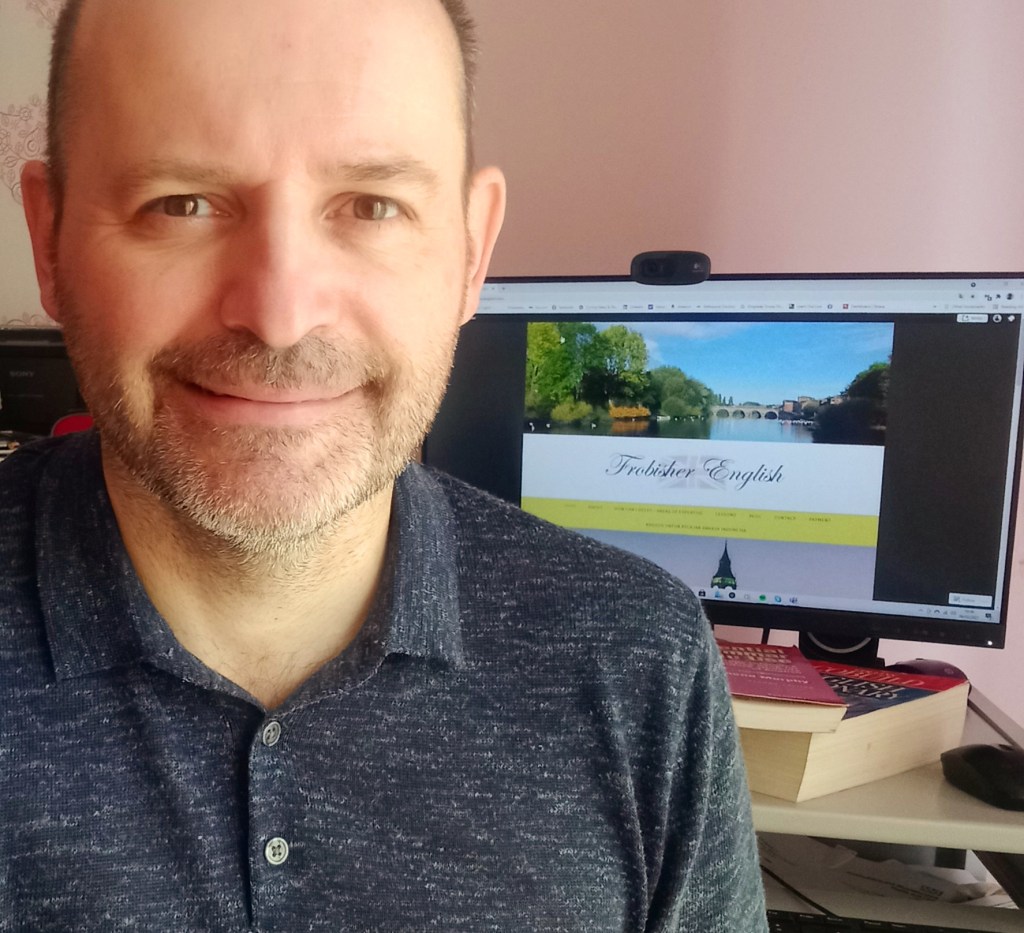Online English Lessons
Reach Your Potential

Welcome to Frobisher English
CONVERSATIONAL ENGLISH – Speak English with confidence, improve your speaking and listening skills with fun, friendly and interactive conversation classes (30 minutes or 1 hour classes)
EXAM PREPARATION – Academic English examination study and preparation. Including IELTS, OET, ISE / SELT, Cambridge & trinity exams (1 hour classes)
BUSINESS ENGLISH – English language skills development for all business professionals. Learn how to use your English effectively for all business situations from presentations to meetings, negotiations to interviews.
PROFESSIONAL SERVICES – Student support for university or college students including proofreading, essay assistance, dissertation assistance etc.
Online English lessons – ‘Excellence in English Language Teaching’
Tony Frobisher, Worcester, UK
BA (Hons.) Diploma in English Language Teaching to Adults (DELTA)
- Highly experienced & qualified native English language teacher since 1997
- 29 years English teaching experience in Indonesia, Malaysia and the UK
- Specialist in Business English teaching to industry professionals
- Runner up EBET – Excellence in Business English Teaching
- Teaching all levels, backgrounds and interests – academic, business and general English
The following English lessons are available
- One : One Lessons English lessons via Zoom, Teams, Google Meet etc
- Group conversation courses, all levels, from beginner to advanced
- Children’s Conversation Classes – get your children talking English!
- Exam tuition & preparation (Trinity ISE (B1 Skilled Worker Visa Exam, IELTS, TOEFL, OET, Cambridge Exams)
- Business English Lessons – covering business skills and personal development training. Using English effectively in work situations, from negotiations to cultural awareness training, business presentation development and fine tuning, meetings preparation, interview skills and preparation
Additional Training Services
- Mentoring – As a DELTA qualified teacher with 29 years experience, I am experienced to advise and assist newly qualified TEFL teachers on any aspect of teaching English. Including methodology, classroom techniques, development and confidence building, effective planning, resource development etc.
- CELTA development and preparation – for anyone wanting to become a CELTA qualified TEFL teacher. I can help with lesson planning, methodology, resource development, and sharing advice from 29 years of classroom and online experience overseas and in the UK.
- English language development and assistance for students – University essay critique and advice, dissertation advice, legibility and clarity in the use of English.
- Proofreading for students, academic and business professionals – ensure accuracy in your written work.

